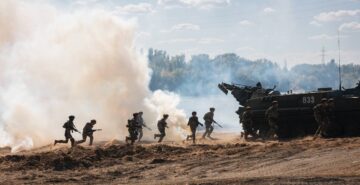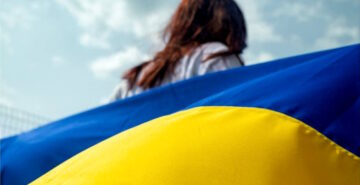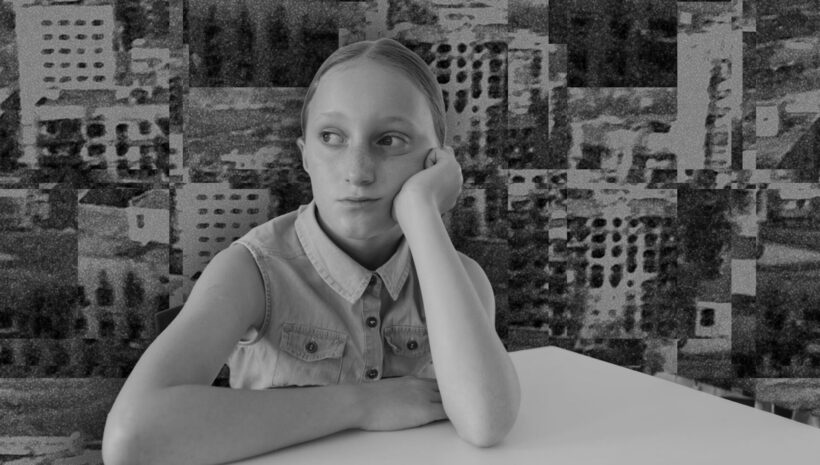

Education as a Tool of Russian Propaganda: What Awaits Learners in the TOT from 1 September 2025
The second month of the new academic year in the territories of Ukraine temporarily occupied by the Russian Federation (TOT) is marked by further intensification of indoctrination and the systematic eradication of Ukrainian identity among children. Open-source monitoring shows a clear trend: in 2025, the occupation authorities are not only maintaining existing mechanisms of Russification but intensifying them through new textbooks, modules on “traditional values”, and “patriotic” activities aimed at completely eradicating everything Ukrainian. The changes that came into force on 1 September 2025 represent yet another stage in strengthening Russia’s ideological control over the educational environment in the TOT.
Scale
At least 592,400 children attend 1,980 schools in the occupied territories that operate under Russian educational standards.
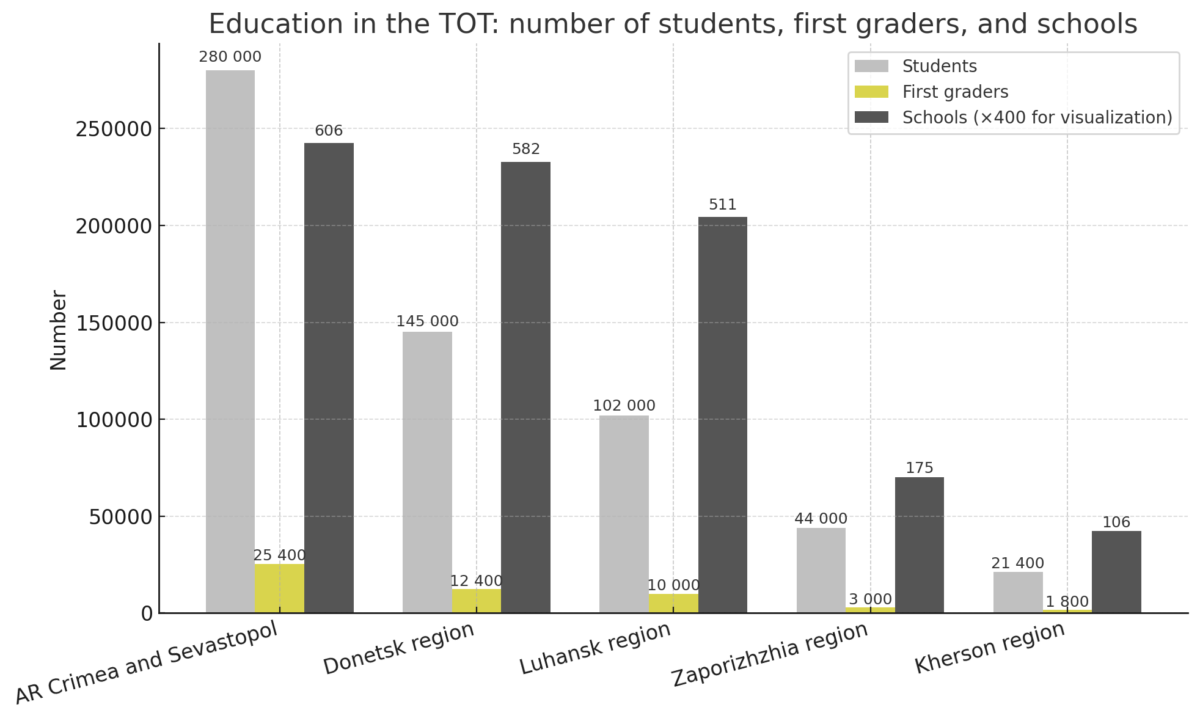

Key changes from 1 September 2025: RF educational innovations extended to the TOT
1. Shaping the “correct” version of history: new unified textbooks
Schools have introduced new unified history textbooks (on both world history and the history of Russia) for grades 5–9, which promote the concept of the “distinctiveness of Russian civilisation” and aim to shape a pro-Russian worldview. These changes are not accidental: in the Russian education system, history has become one of the main tools for promoting the official state ideology of Russia and cultivating loyalty to the Russian regime.
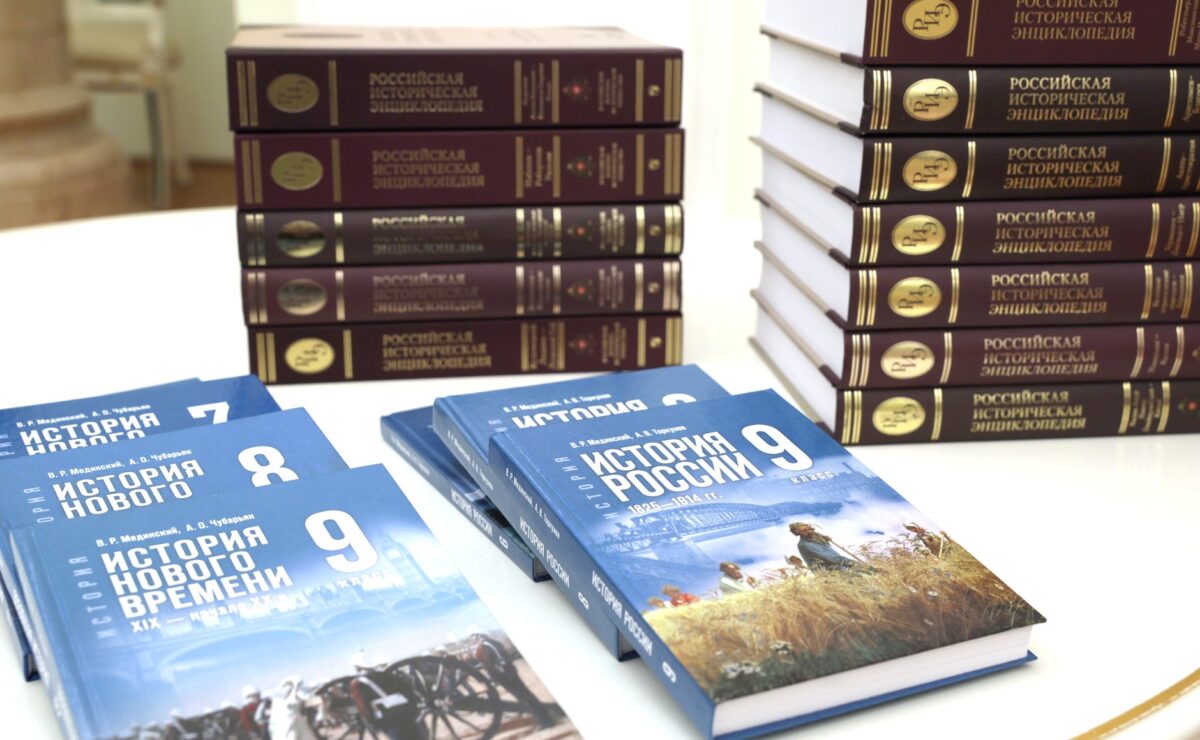

Source: http://www.kremlin.ru/events/president/news/77234/photos/82047, archive: https://archive.ph/wip/ZhETB
Formally, the transition is planned to take two years: 2025/2026 for grades 5–7 and 2026/2027 for grades 8–9. At the same time, the textbooks have already been included in the Russian federal list, which allows regions to introduce them ahead of the officially set deadlines. In Sevastopol, the transition was carried out immediately: in August 2025, more than 59,000 copies of the new series for grades 5–9 were delivered to schools. In the TOT of Kherson Region, reports from August 2025 also mention the receipt of new-format textbooks for grades 5–9. The so-called “Ministry of Education, Science and Youth of the Republic of Crimea” announced the purchase of 122,838 new textbooks for grades 5–7 alone.
In June 2025, the President of the RF, Vladimir Putin, met with the authors of the new history textbooks at the Kremlin and emphasised that this was “an extremely important task for preserving national memory and ensuring continuity between generations”.
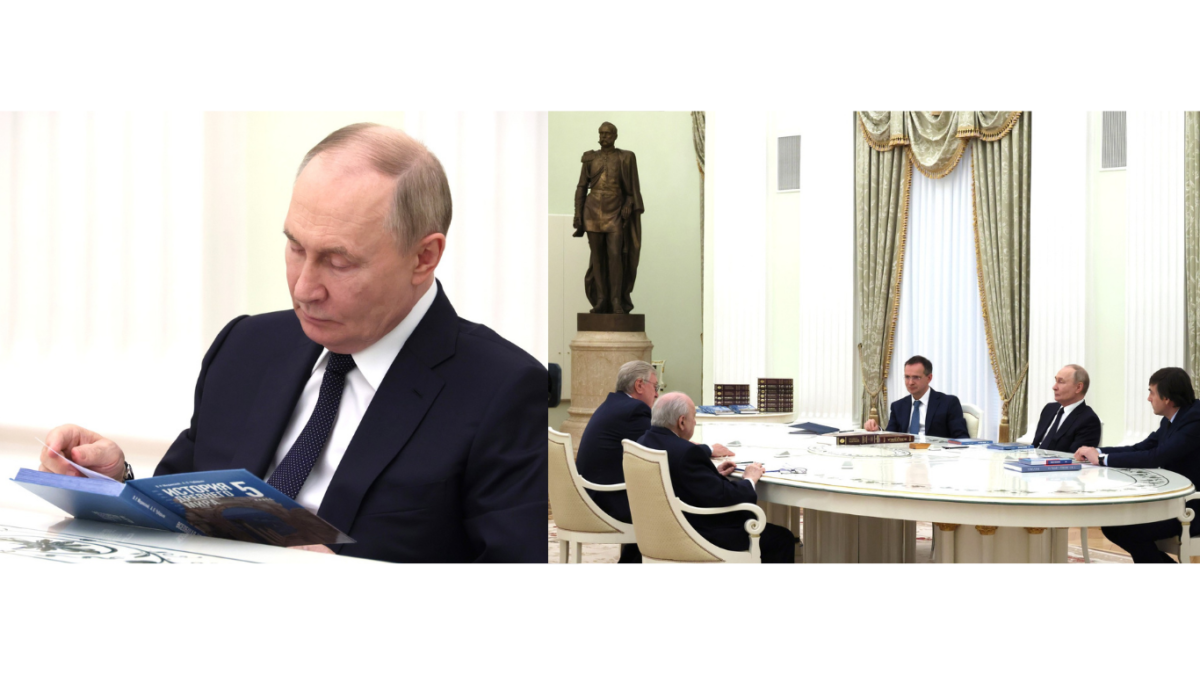

At the same time, a large-scale retraining programme for history teachers was announced to ensure the “correct” way of teaching, which represents another element of centralised control.
As for grades 10–11, unified history textbooks have been in use since 2023 and include sections on the so-called “Crimean Spring” and the “special military operation”, presenting the occupied Ukrainian territories as part of Russia.
In effect, the new textbooks are intended to entrench in students’ minds a version of history in which Russia is portrayed as the bearer of “civilisation”, while Ukraine is depicted as its artificially created “part”.
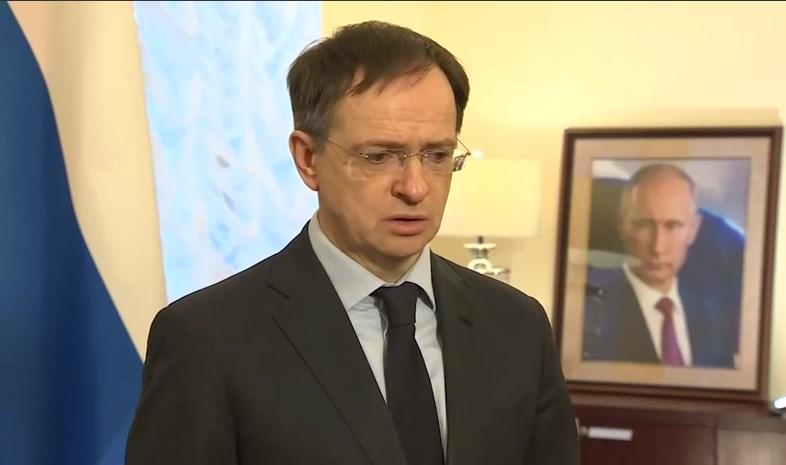

The co-author of all unified history textbooks is Vladimir Medinsky (pictured), born in 1970 in the town of Smila, Cherkasy Region. A former Minister of Culture of the RF (2012–2020), he currently serves as an aide to the president. Medinsky is known as one of the main ideologists of Russia’s historical policy.
In 2024, the Security Service of Ukraine (SBU) charged him with falsifying the history of Ukraine and justifying the war; the criminal proceedings are being considered by the Shevchenkivskyi District Court of Kyiv. In 2025, Medinsky headed the Russian delegation during negotiations with Ukraine in Istanbul.
Since 2013, he has also been the head of the Russian Military-Historical Society, which conducts the outreach campaign “History for the Future: Crimea, Novorossiya, Donbas” on the TOT – a series of propaganda events dedicated to the so-called “reunification” of the occupied territories of Ukraine with the RF. The same organisation created the “Country of Heroes” military camp, whose programme is aimed at “fostering patriotism and respect for the history of one’s country (i.e., Russia) among young people”. Children from the occupied territories of Ukraine, including Sevastopol, are also taken to this camp.
2. Module “History of Our Region”: legitimising occupation through historical falsification
Another new measure is the introduction of a separate module, “History of Our Region”, for grades 5–7. Its main objective in the TOT is to instil in schoolchildren the notion of the supposed “historical belonging” of these territories to Russia. Within this subject, Ukrainian children are taught to perceive the occupation as a “restoration of historical justice”.
To implement this concept, separate textbooks are being created and adapted for each region. The RF Minister of Education, Sergey Kravtsov, announced that the introduction of new regional history textbooks across the country is planned for the next academic year.
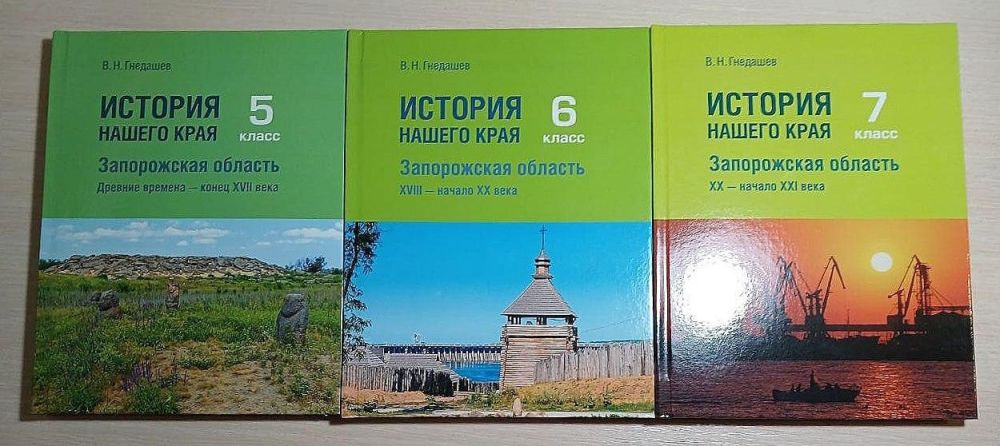

In particular, in the TOT of Zaporizhzhia Region, textbooks have already been developed and approved by experts from the RF Ministry of Education and the Russian Military-Historical Society. It is not yet known whether they will be replaced starting from 2026.
In addition, for the Donetsk, Luhansk, Zaporizhzhia, and Kherson Regions, the occupation authorities have introduced the textbook “History of Donbas and Novorossiya”, which is currently common to all four regions. It is likely that starting from the next academic year, separate textbooks will be developed for each occupied region, following the example of the temporarily occupied territory of Zaporizhzhia Region.
3. Increasing the number of hours devoted to studying the Russia’s official version of history
Russia is making history the main tool of ideological influence on schoolchildren. To free up more hours for this subject, “Social Studies” has been removed from the timetable for grades 6–7, and the time gained has been allocated to the study of history, including the “History of Our Region” module. From now on, learners in grades 5–7 will study history three hours a week instead of two.
For grades 8–9, similar changes are planned from 1 September 2026, after which “Social Studies” will remain only for grades 9–11.
4. Introduction of a new subject: “Spiritual and Moral Culture of Russia”
Starting from 1 September 2025, schools in the TOT of the Autonomous Republic of Crimea and Sevastopol (20 schools in the city) have piloted a new subject – “Spiritual and Moral Culture of Russia” for grades 5–7. The course is intended to shape children’s worldview based on the so-called “traditional spiritual and moral values”, with the Russian Orthodox Church actively involved as a state partner. In the 2026/2027 academic year, this subject will become mandatory in all schools across Russia, including those in other TOTs.
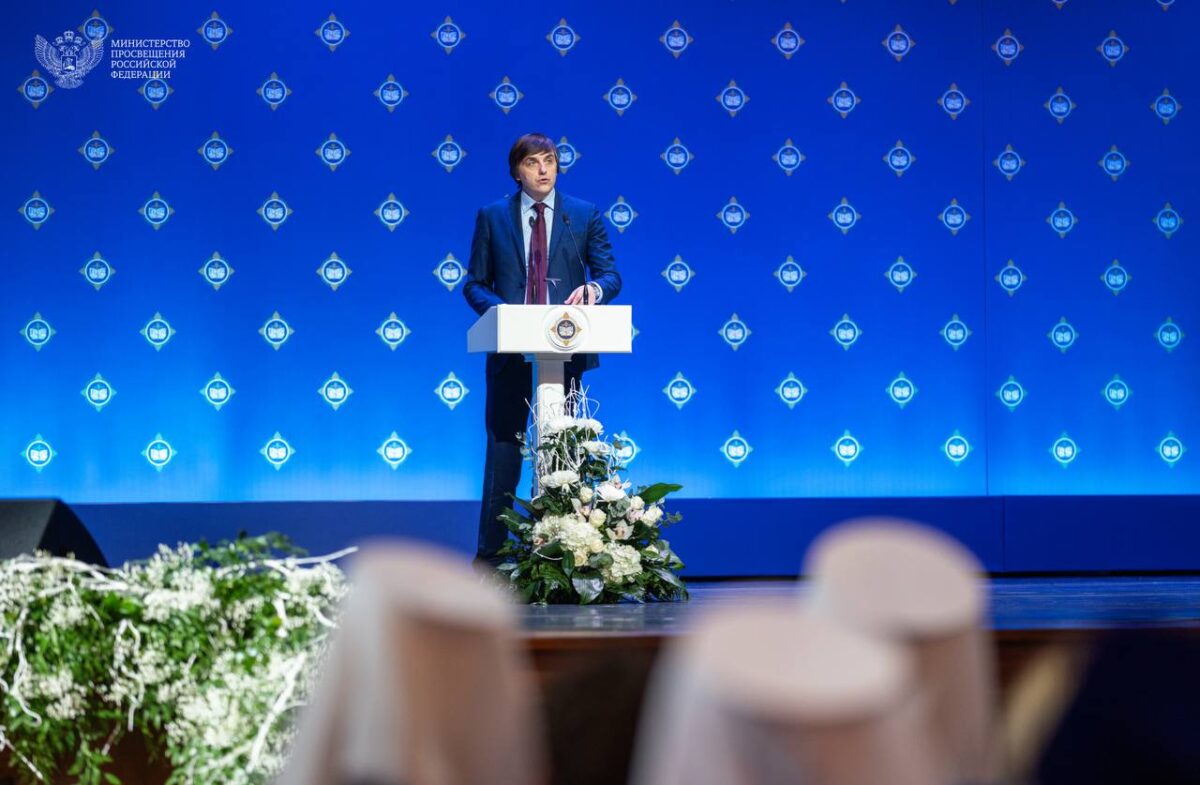

– Sergey Kravtsov, RF Minister of Education, during his speech at the Christmas Educational Readings.
Kravtsov also stated that the “protection of historical truth” and the “cultivation of a sense of generational continuity” are priorities of the Ministry for Patriotic Education of Children and Youth, and that the transition to studying history centred around the history of Russia should contribute to this goal.
In essence, this represents yet another instrument of Russia’s ideological indoctrination of learners, in which state and church rhetoric merge into a single propagandistic message – one of “loyalty to traditions”, “spiritual unity”, and “shared history”.
5. New resources for shaping a pro-Russian patriotic worldview: music, literature, and films
At the end of this summer, the RF Ministry of Education published a number of resources for use in the educational process that have a distinctly patriotic character and are aimed at the cultural indoctrination of learners. These include lists of patriotic music, literature, and films that promotes specific Russian narratives and reflect the Kremlin’s ideological propaganda, particularly the concepts of Russia’s “heroic history” and “traditional moral values”.
Music
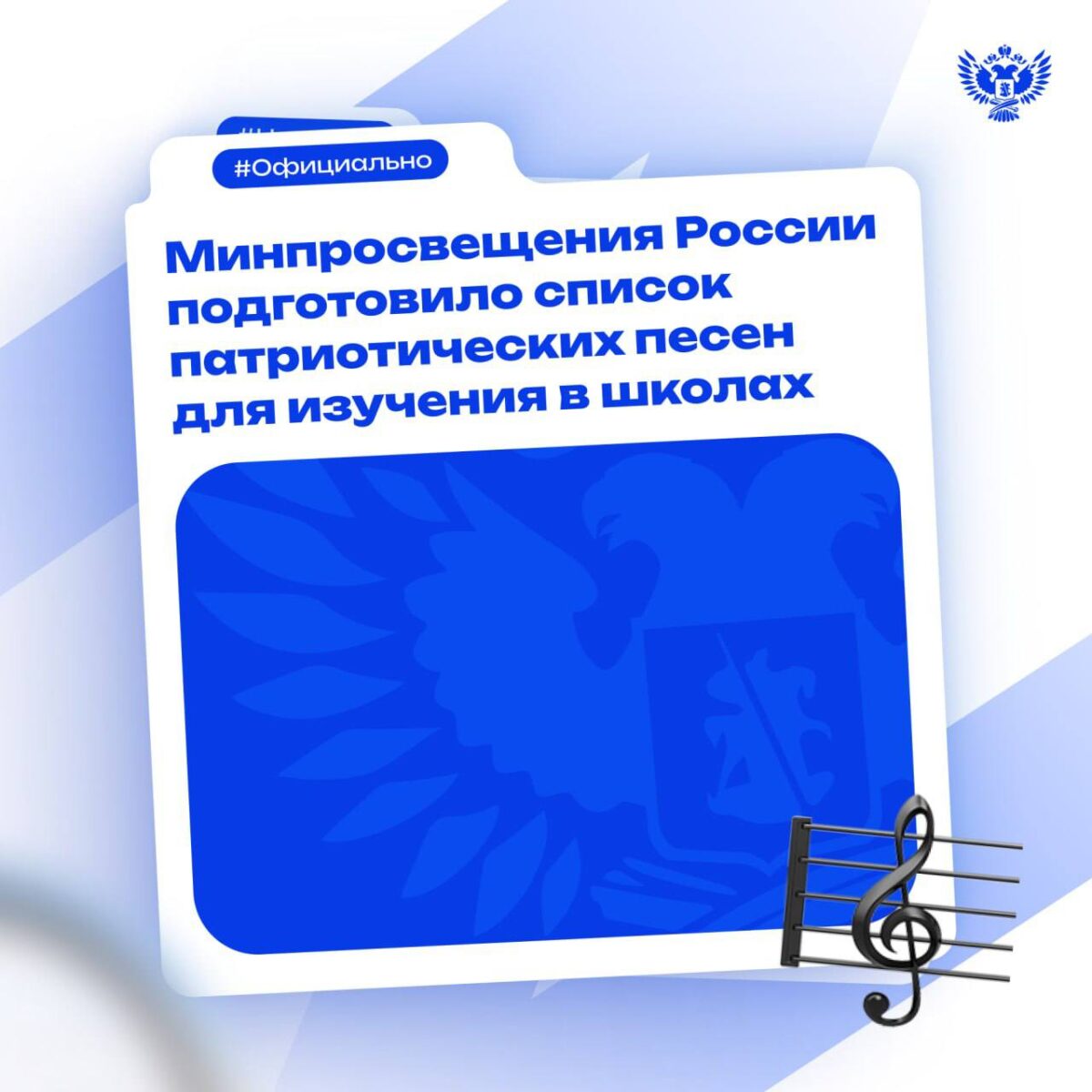

*Translation in the photo: The Ministry of Education of Russia has prepared a list of patriotic songs to be studied in schools.
A list of patriotic songs has been compiled and recommended for use as methodological resources during music lessons at the primary and lower secondary education levels. The document has already been distributed to regions of Russia, including the TOT, for implementation in the educational process.
The list contains 37 compositions “aimed at the patriotic and spiritual-moral education of learners”. In the TOT, these works are used to instil pro-Russian values and views in children and to cultivate “patriotic” feelings towards Russia. Schools independently choose which songs to use.
Among the classical works are “Victory Day”, “My Moscow”, and “At the Foot of the Obelisk”. The list also includes modern Russian propaganda songs such as “Officers”, “The Immortal Regiment” and “Forward, Russia” by Oleg Gazmanov, “Motherland” by Sergey Trofimov, and “Russia” by Denis Maidanov.
The compilation of the list was carried out in accordance with the Presidential Decree of the RF “On the Approval of the Fundamentals of State Policy for the Preservation and Strengthening of Traditional Russian Spiritual and Moral Values” (No 809 dated 9 November 2022).
Literature
The RF Ministry of Education has also prepared a list of patriotic works by contemporary Russian authors for extracurricular reading. The literature is divided by age group, including primary school (grades 1–4), lower secondary (grades 5–9), and upper secondary (grades 10–11), as well as by thematic categories such as “About the Native Land”, “The Great Patriotic War”, “About Great People of Russia”, “Commanders of Holy Rus”, “Guarding the Russian Land”, and “For Ours” (In the original Russian title, the Latin letter Z is used in place of the Cyrillic “З” in “Za Nashikh” (“For Ours”). This symbol, widely adopted in Russian wartime propaganda, is used to express support for Russia’s military actions against Ukraine).
A significant part of the selection is dedicated to military themes, fostering a cult of war and glorifying military actions and Russian soldiers. It also includes works directly related to the war against Ukraine, presented in a propagandistic manner as a continuation of the “struggle against Nazism” and the defence of the “Russian world”.
A significant part of the selection is dedicated to military themes, fostering a cult of war and glorifying military actions and Russian soldiers. It also includes works directly related to the war against Ukraine, presented in a propagandistic manner as a continuation of the “struggle against Nazism” and the defence of the “Russian world”.
To ensure systematic work with these resources, the Russian Ministry of Education has developed methodological recommendations for school librarians. The document defines the principles for forming library collections, including the selection of “patriotic” literature, describes areas of interaction between libraries and students, and provides examples of “successful practices” such as book clubs, themed events, and campaigns.
The use of such resources in the TOT through school libraries ensures constant exposure of learners to pro-Russian cultural content, reinforces the effect of indoctrination, and fosters loyalty to the occupying state.
Cinema
The RF Ministry of Education has sent methodological recommendations to all regions of Russia, including the TOT, on the use of domestic films in schools, created “for the purpose of preserving and strengthening traditional spiritual and moral values”. The basis for these recommendations is a list of 100 films approved by the Presidential Council for Culture and Art of the RF.
The document outlines not only the list of films but also the mechanism for their use: screenings may take place during history, literature, music, or art lessons, as well as within extracurricular educational activities. Schools are also permitted to establish film clubs and “discussion platforms” for collective viewing and discussion of the films.
The recommended selection is dominated by Soviet and war films such as “Chapaev”, “Officers”, “The Dawns Here Are Quiet”, “Seventeen Moments of Spring”, and “They Fought for Their Motherland”. These films reproduce key propaganda narratives, including the glorification of the Soviet past, the cult of the warrior, and self-sacrifice in the name of the Motherland (i.e., Russia) while instilling in learners values of obedience, discipline, and loyalty to authority (“The Shield and the Sword”, “The Meeting Place Cannot Be Changed”).
According to the authors of the methodological guidelines, during film screenings learners “experience strong emotions and empathise with the characters, admire their actions or, conversely, condemn them”. Thus, cinema becomes a tool for the emotional engagement of children in a propagandistic narrative, where positive emotions are associated with Soviet and wartime stories.
The appendices to the methodological recommendations include instructions for teachers on how each film should be interpreted. Using the film “Two Captains” (1976) as an example, the document illustrates how educators are advised to interpret the plot through the lens of “traditional Russian values”, including patriotism, self-sacrifice, and “service to the Motherland and responsibility for its fate”.




Screenshot of pages from Appendix No. 3 to the methodological recommendations – examples of checklists for discussing feature films. Source: https://docs.edu.gov.ru/document/c87c9be575a8cd470628ec0ff67b4a22/download/7719/, archive: https://archive.ph/wip/70RpM
Under occupation, such a “film programme” becomes an important component of indoctrination: in the TOT, where children are deprived of access to the Ukrainian cultural space, Russian “educational” cinema replaces historical memory and cultural reference points, imposing a shared “Soviet” identity and loyalty to the occupying state.
Thus, the changes introduced on 1 September 2025 once again confirm that the education system in the TOT remains one of Russia’s main instruments for ideological control and the russification of children − an issue repeatedly highlighted by the team of the Centre for Civic Education “Almenda”. Through textbooks, “educational” and patriotic events, as well as the daily indoctrination and militarisation of the educational process, Russia is shaping an environment in which children gradually internalise pro-Russian narratives, become distanced from the Ukrainian cultural space, and lose their national identity. This process is not chaotic − it is deliberate and centrally directed from Moscow, making the education system in the occupied territories an integral part of the RF’s hybrid policy in its war against Ukraine.
In these circumstances, it is particularly important to support Ukrainian children who remain under the control of the occupation authorities. The efforts of the Ukrainian state, civil society, and international partners should focus on creating real opportunities for children to return to the Ukrainian educational space, where they can learn free from ideological pressure and control, and preserve their national identity.
Article prepared by the Almenda Center for Civic Education as part of the project “Defending childhood: justice & reintegration for children from TOT”. The project is implemented with the financial support of the Ministry of Foreign Affairs of the Czech Republic within the framework of the Transition Promotion Program. The views expressed in this material are those of the authors and do not reflect the official position of the Ministry of Foreign Affairs of the Czech Republic.


